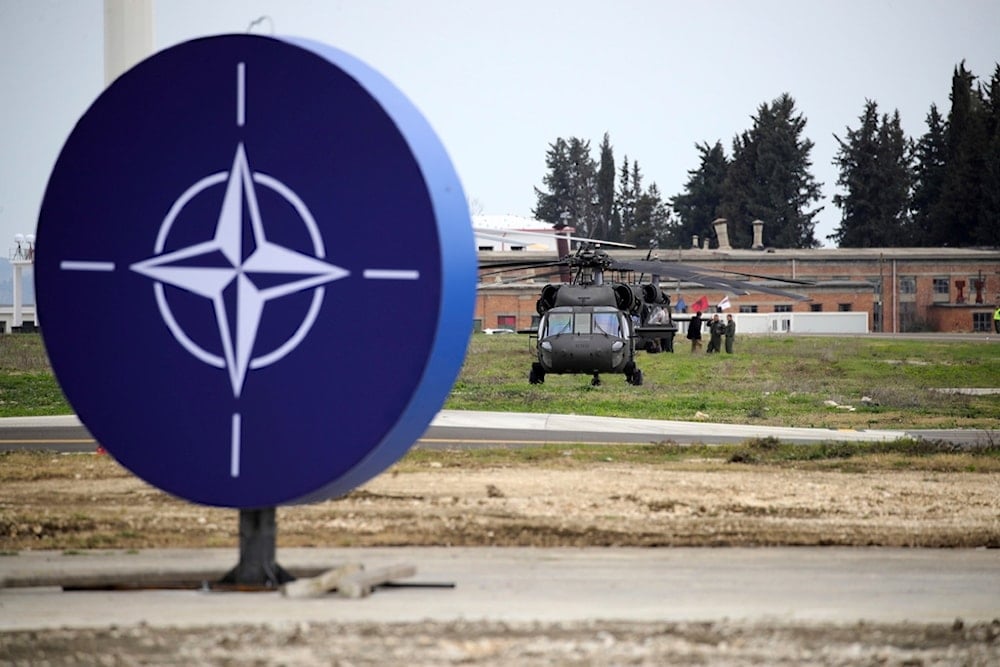NATO plans summit, treaty with Asian partners to expand cooperation
The document set to be unveiled during a three-day summit in Washington starting July 9 aims to solidify NATO's relations with these nations, collectively dubbed the "IP4."
-

Military helicopters are parked at an airbase in Kocuve, about 85 kilometers (52 miles) south of Tirana, Albania, Monday, March 4, 2024 (AP)
NATO is set to embark on a landmark initiative to strengthen ties with key Asia-Pacific allies, as reported by Japanese daily Nikkei Asia.
According to the report, the military alliance plans to issue its first-ever joint document with Japan, Australia, New Zealand, and South Korea next week.
This initiative will lay out a framework for enhanced cooperation, focusing on joint responses to emerging threats such as cybersecurity and disinformation.
The document, set to be unveiled during a three-day summit in Washington starting July 9, aims to solidify NATO's relations with these nations, collectively dubbed the "IP4."
The alliance envisions these countries engaging in crucial cyber training exercises and integrating their defense capabilities with NATO's strategic framework.
Read more: US, Japan, South Korea launch 'Freedom Edge' military drills
In light of heightened tensions with China, discussions on NATO's deeper engagement in the Asia-Pacific region have recently gained traction.
In March, Russian Ambassador to Japan Nikolay Nozdrev stated that NATO member states were actively pursuing a presence in the Asia-Pacific region, with Japan playing a facilitating role in this endeavor.
First proposed in 2022, the prospect of opening a NATO communications office in Japan remains a contentious issue.
Initially planned for 2024, the initiative faced opposition from France last year, citing concerns over alignment with NATO's foundational principles.
However, NATO Secretary General Jens Stoltenberg affirmed that the matter remains under active consideration.
Read more: China will continue efforts to resolve the Ukraine crisis: MoFA
On July 1st, Stoltenberg accused China of inciting the largest military conflict in Europe since World War II.
During an interview with Japanese newspaper Yomiuri, he claimed that Russia is producing missiles and drones with the support of advanced technology imported from China, which allegedly makes Beijing accountable for instigating the "largest conflict on European soil" since World War II.
The secretary-general said there is a strong need to reinforce cooperation between Japan, South Korea, Australia, and New Zealand to intensify pressure on China and "stabilize the region", adding that in the event of developments around Taiwan, NATO would keep its status of the North American and European alliance.
He also said NATO would not be moving ahead with its earlier-announced plan to open an office in Tokyo to avoid provoking Beijing. On that note, Stoltenberg stressed that NATO does not see China as a rival but still views its behaviors as challenging the alliance's values, interests, and security.

 3 Min Read
3 Min Read








